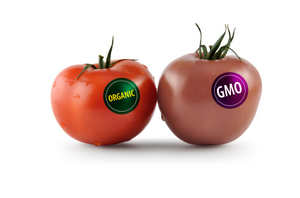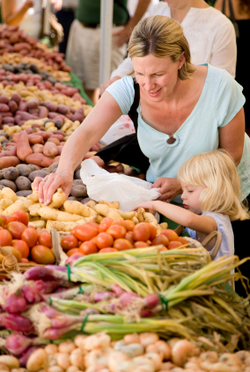Sent from my iPhone
Begin forwarded message:
From: Thomas <tperez36@yahoo.com>
Date: October 30, 2010 11:41:25 AM PDT
To: Mysweet Perez <healinghappy@gmail.com>
Thomas Perez Mirabel Hotel & Restaurant Group Wine Director Sent from my iPhone
From: Thomas <tperez36@yahoo.com>
Date: October 30, 2010 11:41:25 AM PDT
To: Mysweet Perez <healinghappy@gmail.com>
Thomas Perez Mirabel Hotel & Restaurant Group Wine Director Sent from my iPhone
From: Thomas <tperez36@yahoo.com>
Date: October 30, 2010 11:51:38 AM PDT
To: Mysweet Perez <healinghappy@gmail.com>
Eilat Hills Vineyard
Thomas Perez Mirabel Hotel & Restaurant Group Wine Director Sent from my iPhone
Did you know that October is the first official Non-GMO Month? This month, retail stores nationwide will celebrate the consumer's right to be informed of foods and products that contain genetically modified organisms (GMOs).
What exactly are GMOs again?
GMOs, or Genetically Modified Organisms, are products of biotechnology (also called genetic engineering, or GE), which creates new combinations of plant, animal, bacteria and viral genes by combining DNA from one species with DNA from another. The result: new organisms that do not occur in nature.
GMOs are often not labeled as such. In many developed nations, GMO products are heavily restricted or banned altogether because they have yet to be proven safe for people's health and the health of the environment. However, in the U.S. there is a dearth of public awareness of the potentially harmful repercussions of GMO products.
Here are four more reasons why you should celebrate Non-GMO Month this October and empower yourself to make the right decisions for you and your family.
1. Human Health
Currently, seed companies prohibit independent research with their products, leaving very little empirical data available.
2. Environmental and Animal Health
Genetically engineered crops can cause a variety of destructive problems on the surrounding environment. Farmers who use GMO crops can spray their fields to kill everything growing in the area except the specific GMO food crop. The increased use of pesticides and herbicides often leads to superweeds, which then become resistant to the same pesticides, creating the need for stronger, more toxic pesticides (that can leach into our food and water sources!).
3. Moral and Ethical Concerns
Some people question whether genetically altered crops and species threaten and violate the natural order of an environment. Also, genetic modification may involve the creation of foods that are prohibited by certain groups (e.g., the use of animal genes may conflict with some religions, as well as the diets of vegetarians and vegans).
4. Labeling Concerns
Whether you decide to limit or restrict your consumption of GMO products, the right to know what is in our food is important. Research has shown that many Americans would choose not to have GMO products if aware and given the choice.
When shopping for food, it's a valuable practice to stop and ask yourself the basic question: Where does it all come from? It's time for us to be food detectives.
Here are a few ways you may be able to consume fewer GMO products:
To help you choose the right foods, check out the Non-GMO Project's iPhone App Shopping Guide and the Non-GMO Shopping Guide.
How will you celebrate Non-GMO month?
To read the full article by Integrative Nutrition Founder Joshua Rosenthal go to The Huffington Post.
In two weeks Washington State voters will decide the fate of the state's three tier system. This vote is the most consequential initiative concerning alcohol regulations any state in America has put to the voters many years.
The money in opposition to what is called Initiative 1100 comes from beer and wine wholesalers...across the country, not merely in Washington State.
Why do America's alcohol wholesalers oppose Initiative 1100? Very simply because it is an example of leveling the playing field and withdrawing the wholesalers many state-mandated protections folded into the three tier system that allow them to control the alcohol distribution system and guarantee themselves income earned by virtue of their place in the three tier system, not their performance or value.
What does Initiative 1100 do?
1. Takes the state out of the business of being the retailer of spirits through state stores
2. Gives private wine and beer retailers the right to sell spirits
3. Allow retailers and restaurants to buy spirits, beer and wine directly from producers, going around wholesalers
4. Allow volume discounts from producers to retailers/restaurants
5. Eliminate price controls
6. Allow retailers to warehouse their inventory and distribute it themselves to their various stores
7. Allow retailers to buy on credit
Alcohol wholesalers don't want any of this because it removes laws and restrictions that help wholesalers unnecessarily dominate the sale and distribution of alcohol. But their real fear is that these kind of sensible, consumer friendly, market-friendly reforms might spread to other states.
Recently at the Beer Wholesalers of America's National Convention in Illinios, the Wholesalers Chairman, Mitch Watkins called the move in Washington "a real and immediate threat". He's right. It is a threat to the kind of hacker's high handicap the wholesalers have been granted by the states.
Wholesalers make a lot of noise about just wanting to "protect" a system that "protects consumers" and "has for more than 75 years". Don't believe it for a second. That kind of rhetoric, if true, would represent the first time that an commercial industry supported something not because it benefits them but supposedly benefits others. The argument is similar to what the wholesalers have said about H.R. 5034, a bill in Congress that would prevent challenges to unconstitutionally discriminatory alcohol laws. Wholesalers argue that they've spent millions of dollars to pass this law because states need to be protect from lawsuits challenging their alcohol laws. In what imaginary universe have private companies decided that their primary mission is to protect the state from lawsuits? The wholesalers use doublespeak. Plain and simple.
What's weird is at their conventions and meetings the wholesalers themselves sit and listen to their own representatives tell them that the emperor is sporting some amazing new duds while they know full well he's completely naked. And they sit there and nod their heads approvingly. There's a name for sitting and listening approvingly to lies.
To-date, the anti-Initiative 1100 campaign has raised over $8 million, most of it from alcohol wholesalers around the country and with more than $2.4 million form the Beer Wholesalers of America an the Beer Institute alone. Recently the Wine & Spirit Wholesalers of America have thrown over $250,000 in the effort to kill reform in Washington State though an organization ridiculously named, "People for Responsible Liquor Law".
If Initiative 1100 passes a variety of things will come to pass:
1. Consumers will have greater choice in their alcoholic beverages
2. Consumers will see lower prices for alcoholic beverages
3. Retailers will be freer to source product from a wider array of suppliers, allowing them to better serve their customers
4. The alcohol distribution system will become a fairer and more just system
With any luck, Initiative 1100 will pass in Washington State and will be followed up with similar initiatives in other states where the emperor is declared to have no clothes.
http://www.youtube.com/watch?v=qcjVfXBxvdg&feature=youtube_gdata_player
Sent from my iPhone